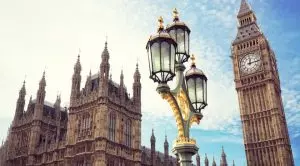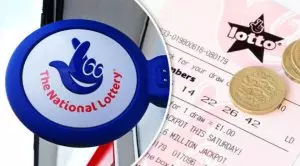 In April 2018, The Lotteries Council held its Annual Conference and Networking Event, which was aimed to provide a better perspective of the UK lottery sector, with a number of exhibitors and industry officials taking part in the event.
In April 2018, The Lotteries Council held its Annual Conference and Networking Event, which was aimed to provide a better perspective of the UK lottery sector, with a number of exhibitors and industry officials taking part in the event.
The major gambling regulatory body of the UK – the UK Gambling Commission (UKGC) – also took part in the Conference, with its Executive Director Tim Miller participating in the second speaker session on April 18th. Mr. Miller spoke of the relationship that UK lotteries and good causes always shared and explained that the demand for such organisations’ services has increased lately. Furthermore, the Executive Director of the UKGC explained that lotteries have been one of the most significant sources of income for a variety of local communities-oriented good causes.
UKGC Executive Director reminded that issues related to lotteries and optimisation of the returns to good causes have been among the five paramount priorities set in the three-year Strategy of the Commission published in last November. Mr. Miller used the opportunity to reassure all interested parties that the Commission remains focused on guaranteeing that lotteries’ contributions to society would be redirected to good causes.
Increasing Diversification Marked in the UK Lottery Sector
 As mentioned above, the UK gambling regulatory watchdog Executive Director explained that the UKGC strategy published in November 2017 has five priority objectives, one of which is optimization of the returns made by lotteries to good causes.
As mentioned above, the UK gambling regulatory watchdog Executive Director explained that the UKGC strategy published in November 2017 has five priority objectives, one of which is optimization of the returns made by lotteries to good causes.
That was exactly the starting point used by Mr. Miller to once again clarify the UK Gambling Commission’s intentions to ensure a safe and transparent lottery sector in the country. Up to date, nearly 500 society lotteries as well as 40 External Lottery Managers are being operated by the UK gambling regulatory body. As explained by the Commission’s Executive Director, a significant increase in the number of local authorities offering lotteries in order to raise funds to support their initiatives has been marked.
In addition, the last few years saw some significant changes brought to the customers’ lottery participation. The latest report on 2017 gambling participation report issued by the Commission in February 2018 proved that lotteries were the most popular form of gambling after the National Lottery. What is more, the diversification of the domestic lottery sector has increased lately, with players being able to participate in lotteries by using various online applications, apart from more traditional methods by using direct mail, direct debit and vending machines.
UKGC Enforcement Policy Related to the National Lottery
 As long as the National Lottery enforcement under the Gambling Act 2005 is concerned, a consultation paper on the matter was released by the UK Gambling Commission on October 11th 2017. The interested parties had until November 21st 2017 to provide their response on the issue, with two responses received by the country’s gambling regulator in the end.
As long as the National Lottery enforcement under the Gambling Act 2005 is concerned, a consultation paper on the matter was released by the UK Gambling Commission on October 11th 2017. The interested parties had until November 21st 2017 to provide their response on the issue, with two responses received by the country’s gambling regulator in the end.
The consultation was only concentrated on the enforcement work conducted by the UKGC in terms of its licensing objectives set in the Gambling Act 2005, rather then covering the Commission’s enforcement work on the National Lottery. The UK gambling regulatory body, however, revealed that it wanted to harmonise its approach to the National Lottery enforcement, so the watchdog proposed certain changes to its National Lottery Enforcement policy.
In January 2018, the Commission published the consultation response, as well as its updated enforcement policy related to the National Lottery. At the time the latter was issued, the UKGC explained that it intends to exercise its functions under the policy in order to secure that both the National Lottery and the rest of the lotteries are promoted with the due propriety. In addition, the Commission stated that it intends to act in a way that protects the interests of all participants in a lottery held as part of the National Lottery.
General Principles
 The UKGC revealed that its regulatory action under its National Lottery enforcement policy is to be carried out in compliance with five major principles – proportionality, consistency, evidence-based decision-making, accountability and transparency, and human rights compliance.
The UKGC revealed that its regulatory action under its National Lottery enforcement policy is to be carried out in compliance with five major principles – proportionality, consistency, evidence-based decision-making, accountability and transparency, and human rights compliance.
The principle of proportionality means that the Commission is to intervene only in case that its targeted enforcement action is necessary and would make sure that the actions taken are to be appropriate in order to make sure that the statutory objectives are met. As far as the principle of consistency is concerned, the UKGC is to treat similar cases in a similar way unless it finds a good reason not to. In addition, the watchdog’s decision are to be made in accordance to the presented evidence.
The principle of accountability and transparency, on the other hand, is to be used to explain to key stakeholders how the Commission makes its enforcement decisions and what actions have been taken. The regulatory authority is also aimed at providing clarity in terms of enforcement decisions. In addition, the Commission is to comply with the provisions of the Human Rights Act 1998 in its National Lottery enforcement procedures.
Investigations
 Investigations could be given a start in case that the UK Gambling Commission finds that a licence condition breach could be made by a certain lottery operator. Then it must decide whether to start an investigation or no further action is necessary.
Investigations could be given a start in case that the UK Gambling Commission finds that a licence condition breach could be made by a certain lottery operator. Then it must decide whether to start an investigation or no further action is necessary.
There are various channels through which a certain matter could be sent to the UKGC for consideration, including formal incident reports, formal performance reports, compliance reviews, trends analysis, player complaints or analysis, public interest disclosures, etc. An investigation is commenced after the information received is thoroughly reviewed and then submitted to the Issues Management Group which is the one to decide how the matter should be addressed further.
In case that the Group makes a decision that a formal investigation is necessary, a written “Notice of Investigation” is to be sent to the operator.
Decision Making under Current Enforcement Policy
 After the investigation is completed and the evidence and facts are taken into consideration, the Commission makes a decision in accordance with its Corporate Governance Framework. Of course, operators will be given the chance to make written representations before the decision is made.
After the investigation is completed and the evidence and facts are taken into consideration, the Commission makes a decision in accordance with its Corporate Governance Framework. Of course, operators will be given the chance to make written representations before the decision is made.
The decision-making process includes three stages. Over the first stage of the process, the regulatory body is set to consider all the circumstances of the case when making a decision what action should be taken against the operator. Then, the purpose of the possible sanctions should be considered in correspondence with a list of sanction principles. The third stage of decision making involves the watchdog consider whether or not the sanction is appropriate in accordance to stage one and two.
After doing that, the regulatory body has a number of options to choose from, including taking no further action, sending a notification of licence breach to operator without imposing a monetary penalty, undertakings, an independent review requirement, imposing new or amended license conditions to the operator, imposing a monetary penalty or even licence revocation.
Funds Raised by Good Causes
 Back in mid-February, the UK Gambling Commission published a report about the funds raised for good causes over the third quarter of the fiscal 2017/2018.
Back in mid-February, the UK Gambling Commission published a report about the funds raised for good causes over the third quarter of the fiscal 2017/2018.
The major gambling regulator in the UK also provided a comparison between the figures reported in Quarter 3 of 2016/2017 and the current fiscal year, as well as information about the quarterly returns for good causes since the 2012/2013 fiscal year.
At the time when it published the report, the regulator explained that the National Lottery has raised more than £37 billion for good causes, including sports, health, environment, education arts and heritage. Funds are raised from National Lottery games sale as well as by prizes which remained unclaimed. The UK Gambling Commission also shared that so far, more than 420,000 projects, both large and small, have benefited from Lottery funding.
Payments to good causes are made to the National Lottery Distribution Fund (NLDF) which is currently overseen by the Secretary of State for Culture, Media and Sport.
According to the latest report about funds raised by UK lotteries for good causes, the third fiscal quarter of 2017/2018 brought the largest returns to good causes, with a total of £477.6 million gathered from October to December 2017. In addition, the amount represented a 10.8% increase in comparison to the one posted over the third fiscal quarter of 2016/2017, which was estimated to £431 million. It was also 24.3% higher than the second fiscal quarter’s total of £384.3 million.
- Author


